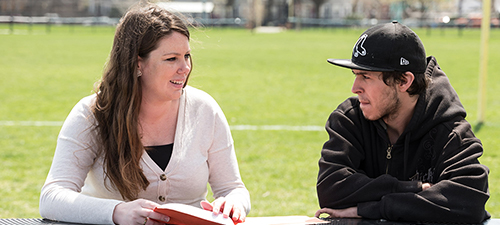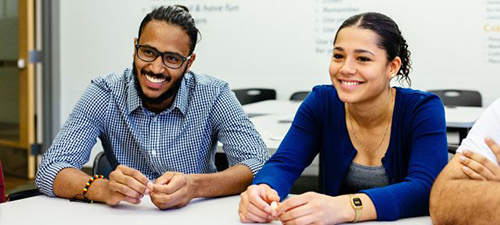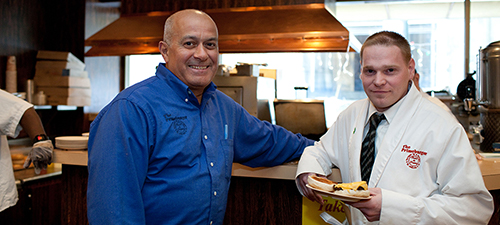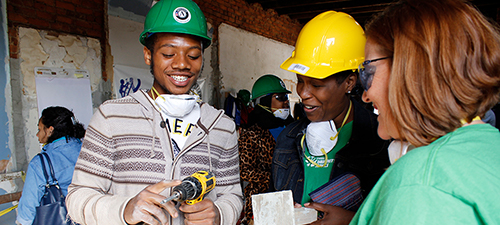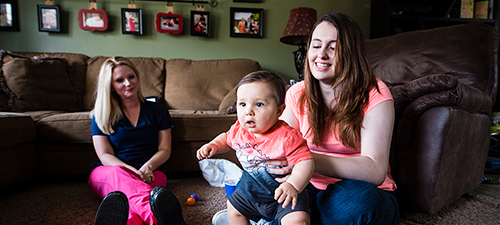Opportunities for Youth
Redefining the life trajectories of America’s impoverished young adults
A 16-year-old drops out of high school because she can’t afford to purchase the required uniform. A teenager lives in a car after he and his family lose their home. Still another is juggling the demands of school with being a single mom. Nearly 14% of the U.S. population lives in poverty, defined as making an annual income of less than $24,600 for a family of four. The effects are long-lasting: individuals living in poverty are more likely to experience violence, be in foster care, drop out of high school, be unemployed, develop type 2 diabetes, and rely on social services. Youth are the most vulnerable; one out of every five kids under the age of 18 in the U.S. lives in such scarcity.
On their own, the numbers may sound depressing. But there is hope. In this section, we focus on poverty as it specifically affects young adults, and by extension, their children. We do so because intervention at this stage presents an exceptional opportunity to shift life trajectories and potentially break the cycle of impoverishment. In the following pages we highlight five organizations that connect particularly vulnerable young people—youth aging out of foster care; unemployed and under-skilled young adults; those returning from prison; high school dropouts; and young, first time (often single) parents—to opportunities and support systems that promote greater personal and economic stability.
New research indicates that our brains are not fully formed until we reach our early 20s—a fact that helps explain some dubious decision-making among teens and young adults. It also means that there is room to build in better mental habits and behaviors. If young adults are more stable, personally and economically, not only do they benefit, but so do any current or eventual children who have a better shot at growing up in a supportive environment.
In supporting the work of the organizations listed below, donors can help young people at critical stages of their lives and assist them in reaching their untapped potential. As one such young adult described her transformation from high school dropout (because she couldn’t afford the uniform) to exotic dancer to salutatorian of YouthBuild Philadelphia Charter School’s Class of 2014:
When you invest in young people—when you support, mentor, and guide them—you can change the trajectory of their life. When young people have their eyes opened to experiences and opportunities they never thought were possible, they can dream bigger and their reality can be so much more.
—Carmen, YouthBuild Philadelphia Charter School Graduate

